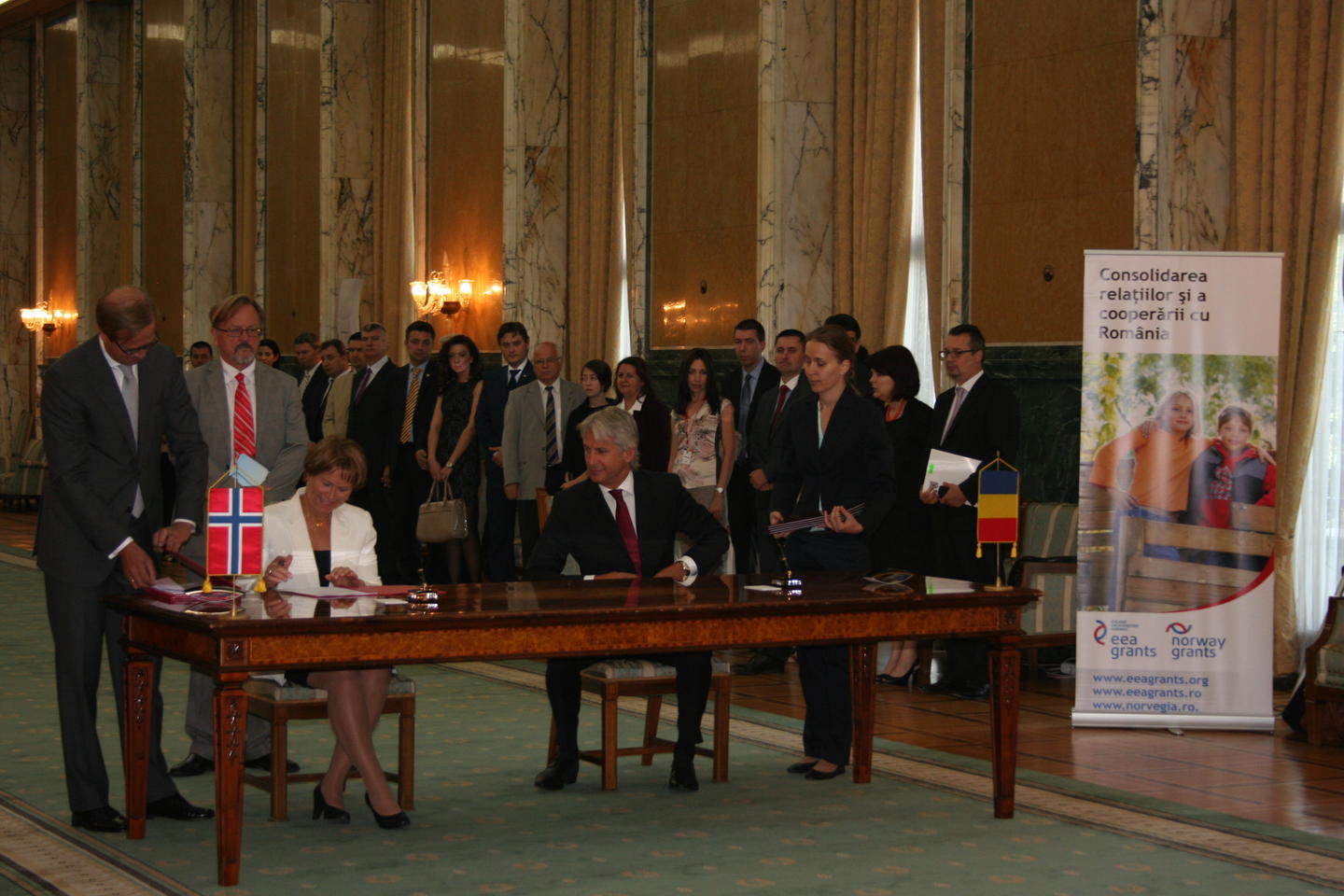The four justice programmes in Romania will contribute to combat organised crime and prevent human trafficking, to on-going judicial reform, to improve prison conditions and to reduce domestic violence.
The four new justice programmes were signed in Bucharest on 28 June by Norwegian Minister of Justice and Public Security, Grete Faremo, and the Romanian Minister of European Funds, Eugen Orlando Teodorovici.
“The programmes launched today are part a total of € 306 million in financial allocation to Romania which contributes to a number of programmes in the field of justice and home affairs, environment and climate change, civil society, green innovation, cultural heritage and research.” said Ms Faremo.
Romania is the second largest beneficiary of the EEA and Norway Grants in the current funding period. The allocation to the justice programme amounts to around € 25 million and will be implemented until 2016.
“The Grants represent an excellent opportunity to develop our cooperation and partnership. The assistance provide will come to assist the Romanian judiciary in its present and future endeavours dedicated to a more efficient and transparent justice system for all citizens.” said the Romanian Minister of Justice, Robert Cazanciuc, who also took part in the signing ceremony.
The cooperation under the justice programmes includes involvement of the Norwegian Police Directorate, The Norwegian Courts Administration, the Norwegian Correctional Services and the Council of Europe.
Supporting judicial reform
The Grants support the on-going judicial reforms in Romania. As part of the programme:
- At least 6 000 judges, prosecutors, clerks and lawyers will be trained in The European Convention of Human Rights, mediation and the new legislation
- A new electronic case-handling system will be developed and installed and more judicial institutions will be connected to the new system.
- At least 1000 vulnerable persons, including Roma, will benefit from free legal advice
Read more about the programme and what it will achieve.
Tackling organised crime and combating trafficking
Through Norway Grants, police cooperation between Romania and Norway as well as with Romania’s closest neighbors will be strengthened in efforts to combat and prevent organised crime and human trafficking. 300 police officers in both Romania and Norway will participate in common workshops on prevention and investigation of organised crime.
Through the domestic and gender-based violence programme, support services for victims of trafficking as well as victims of gender-based violence will be improved. This includes establishing shelters and offering assistance to victims. Through the programme, at least 15 vulnerable communities, including Roma communities, will be informed of the dangers related to forced begging.
Improving the relationship between the police and the Roma communities and other vulnerable groups is also in focus with training of police officers to counter hate crime and prevention and countering of victimisation of Roma.
Read more about the programmes and what they will achieve.
Improving prison conditions
More effective rehabilitation of criminals and improving prison conditions to meet international standards are priorities for the Grants in Romania. Some of the measures that will be implemented are:
- Two prisons and 52 police pre-trial detention centres will be refurbished in order to bring the general conditions and standard living space in line with international standards
- The prison and probation services will be strengthened to increase the use of alternatives to prison
- The conditions for juveniles will be improved, including improving the educational opportunities
Read more about the programme and what it will achieve.
Better conditions for vulnerable groups
"Improving the situation for Romania’s Roma population is one of the priorities of the Grants." said the Norwegian Minister at the signing ceremony. She underlined that European countries have a joint responsibility to address the exclusion and discrimination of the Roma.
At least ten per cent of funding to programmes in Romania such as civil society, children and youth at risk, public health, correctional services, judicial capacity building, domestic and gender-based violence, research, scholarship and culture is set aside for improving the situation of the Roma.
